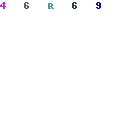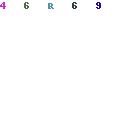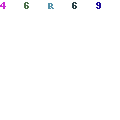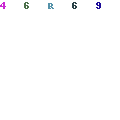Punctum Books – a new reality
Academic publishing has a set way of working–from submissions to publishing and editing to peer-review–the system of academic publishing has been a difficult path for everyone, including academics and students alike. An SIUE College of Arts and Sciences (CAS) professor is working with a group of like-minded individuals to create a publishing company that will hopefully change this path, and maybe the system in the process.
Eileen Joy, associate professor of English language and literature, began this process seven years ago with help from Nicola Masciandaro, an associate professor of English at Brooklyn College and one of Joy’s partner in the endeavor.
Joy, whose academic interest is medieval literature, stated that seven years ago, she helped create the BABEL working group and according to the BABEL website, the spark came from a conference in 2003.
BABEL is a group of more than 200 scholars from North America, the U.K. and Australia that thinks about changing the way people think about the university. Many of the scholars are medievalists and early modernists, also known as renaissance scholars.
“When we first started seven years ago, we wanted to change the way things are done in the university. I keep saying that I am a medievalist, but most of my career has been geared towards changing the humanities, and making the humanities more interested in the real world. I also defend the rights for the humanities to do whatever it wants,” said Joy. “I think the university should be a place where a physicist, a poet, a biologist, and a shakespearean should do exactly what they want to. I mean, a university is the only place in American life where people can think.”
Joy stated that the old system can take two to four years to get books published with the review, editing, and production processes. The system is slowed down often by professors who are often overworked and getting paid very little to take on additional tasks of editing books and journals. The time and effort involved in the process drives the prices of books up, including student text books. Joy, who also has a background in business and accounting, stated this model is unsustainable.
“Why is a math textbook $150? Why? It’s not worth it. As soon as you buy that book and take it on the open market, you get 15 cents for it, no one wants it,” said Joy. “Something is wrong with that model and it can’t be sustained over time.”

Nicola Masciandaro, an associate professor of English at Brooklyn College and Eileen Joy's partner in Punctum Books. photo courtesy of BABEL working group.
The new model that Joy is working on involves looking to the future of publishing. The question that Joy wants to answer is could there be an independent academic press, not associated with a corporation or university and could it be made profitable.
“I love thinking about these things. I think its fun to think about it is possible to have a profitable university press? What would it look like? How would you do it?” said Joy.
As the BABEL working group undertook the task, their first accomplishment was a print journal, which is published by Palgrave Publishing, according to Joy, one of the largest corporate academic publishing companies based in London, England. Joy saw this as a major coup for SIUE and BABEL. Palgrave accepted their journal proposal and signed a contract for the journal, agreeing to pay for producing, advertising and marketing, and distribution of the journal. The journal is called “postmedieval: a journal of medieval cultural studies” and is housed at SIUE, according to Joy.
From there, the group started a conference that convenes every two years. According to Joy, the next conference is scheduled for September 2012 in Boston, Mass. It is being co-sponsored by Northeastern Boston College and MIT.
 BABEL and Joy’s next endeavor is in progress now. The group is behind a new type of online press that will publish books as online editions and print books as well. According to the Punctum Books website, Punctum Books is “an open-access ad print-on-demand independent publisher dedicated to radically creative modes of intellectual inquiry and writing across a whimsical para-humanities assemblage.”
BABEL and Joy’s next endeavor is in progress now. The group is behind a new type of online press that will publish books as online editions and print books as well. According to the Punctum Books website, Punctum Books is “an open-access ad print-on-demand independent publisher dedicated to radically creative modes of intellectual inquiry and writing across a whimsical para-humanities assemblage.”
Joy stated that every book published will be available as a downloadable PDF file. It will look exactly as a print version. The download will come with an open access copyright with anybody being able to download and share it.
“Anybody can download it and share it. What they are not allowed to do is alter it, claim it was written by them, or sell it. The same book will be available as a [print] book, and those books will never cost more than $10-20,” said Joy. “We’re trying to do two things at once. We’re trying to look forward to the future of publishing–which really is going digital. But since I work in medieval studies, I still care about the book, as an artifact, but also as a product.”
Joy stated the hope for the press is to expand the scope of books being published by academics.
“We want to publish books in the humanities that no one else would touch with a ten-foot pole. Because they’re radical, forward looking, creative– because that’s the other thing about academic publishing. You have to kind of toe the line in every field. You are supposed to be original and you’re supposed to say something that no one else has said before,” said Joy. “But, you have got to go through this whole approval process. A lot of stuff never gets published because people will say, ‘Well, I just disagree with you.’”
Punctum Books has a review process and editorial board with a broad range of academic backgrounds such as medievalists, media studies, political philosophy, and visual culture scholars. The editorial board includes people from Johns Hopkins and University of London as well as a host of other universities. Joy stated that this will ensure that the texts will be solid academic books.
 “We’re telling everyone we want you to bring us the books and the ideas that are so kind of whack that no one else will publish them. But they have to be rigorous. They have to be well-researched,” said Joy.
“We’re telling everyone we want you to bring us the books and the ideas that are so kind of whack that no one else will publish them. But they have to be rigorous. They have to be well-researched,” said Joy.
Although Punctum Books will not have a specific publishing tie to SIUE, Joy stated that SIUE will be interested in getting involved. Punctum Press’ technical address is in Brooklyn, New York, and Joy hopes that it will grow so that they will be able to have a warehouse and store fronts.
Joy stated that she hopes that on top of expanding the scope of academic works, she thinks Punctum Press will be able to make books affordable for students as well.
“I think about students a lot, too. Why shouldn’t graduate students be able to afford books? I mean, do you want them to be into the books? Let’s make books that libraries can afford and students will buy because they want to–Oh, that book’s only $10.”
Filed Under: English Language & Lit













